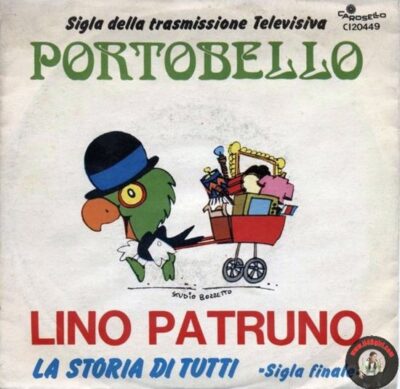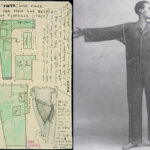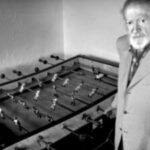October 7, 2024 Mode characters common stories
This is how truth TV was born.
Enzo Tortora, a man of great class
It is impossible not to remember Portobello without thinking of the personal story of Enzo Tortora.
It will never be possible to forget his suffering face on the evening of February 20, 1987, the phrase “So, where were we…” and the subsequent roaring and emotional applause of the audience ?
A short time later, Enzo Tortora would be gone, destroyed not only in his morals but also in his body, after his absurd and unjust imprisonment in prison.
In 1977, Enzo Tortora had just returned to RAI : his return had been eagerly awaited by the director of Rai Due, Massimo Fichera, who had entrusted him, along with Raffaella Carrà, with the hosting of “Accendiamo la lampada”.
The Genoese TV host returned from his second “exile”.
In 1969 he had seigneuriously hosted Domenica Sportiva, and in an interview with a newspaper he had declared that Rai was like “a colossal jet driven by a group of boy scouts who like to play with the controls”.

A phrase that was certainly well-founded and still absolutely relevant, but one that had provoked the inevitable wrath of the management.
It automatically led to his dismissal, a punishment not new to him.
He had been dismissed in the 1960s for allowing Alighiero Noschese to create an imitation of Amintore Fanfani that the censors of the time considered offensive.
Portobello was created in 1977 by Enzo Tortora, his sister Anna, Angelo Citterio, Adolfo Perani, and Gigliola Barbieri.
At the center of the program were ordinary people, especially those characteristic of the Italian provinces, with their simple values and naivety.
Presenting “Campanile sera” together with Mike Bongiorno and visiting the villages of the Italian provinces was certainly a fundamental experience for Enzo Tortora.
This was the birth of truth television, a genre that would later produce numerous clones, almost always too pathetic and, above all, tearful.
“Where Are You” and “Orange Blossoms” were two of Portobello’s regular programs.
In addition to these, the show also focused on inventors discovered in the most hidden corners of the Italian province.
Numerous inventions and ideas were presented in each episode, some of them truly outlandish and bordering on the insane.
How can we forget the one who wanted to level the Turchino hill to create a natural outlet for the fog in the Po Valley ?
Or the anti-drip ice ?
Or the circular vote ?
After the presentation of each invention, these bizarre characters were escorted into narrow booths, each equipped with a telephone, where offers – often completely unfounded – arrived from people interested in the inventions.
It all ended when Enzo Tortora uttered the fateful sentence :
“Big Ben has said stop !”
Before any call would reach the advertisers, there was the filter of the famous telephone operators, headed by “Her Suavity” (according to Enzo Tortora’s definition) Renée Longarini.
It should be remembered that the role of operator in the Portobello program was a great springboard : in fact, the role of operator was the prerogative of such personalities as Gabriella Carlucci, Eleonora Brigliadori and Susanna Messaggio.
Another highlight of the show was the entry of the Portobello parrot into the studio and the guest on duty whose job it was to make it talk.
A feat that became more and more difficult with each episode, and only the actress Paola Borboni succeeded.
The prize won by the actress was donated to charity and was used to pay for treatment related to cosmetic surgery (facial burns) undergone by a child from Genoa.
Enzo Tortora was assisted by Lino Patruno who, with his Portobello Jazz Band, provided the musical interludes between the columns.
Portobello’s success was overwhelming from the start.
In 1977, the year of its debut, it ranked 10th among the most watched programs with an average audience of about 20 million viewers, in 1978 it ranked 2nd with 25 million viewers, and in 1979 it reached 1st place with 25.1 million viewers.




